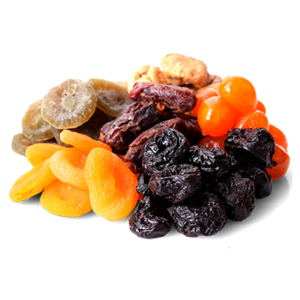Raw Diet – Easy Weight Loss

What foods should you avoid for fitness?
It is hoped that after reading the recommendations of this article, you will reduce the amount of junk food you eat.
These foods are as follows:
Sugar-based products: Foods rich in sugar, especially sugary drinks, are associated with an increased risk of obesity and type 2 diabetes.
Trans fats: Trans fats, also known as partially hydrogenated fats, have been linked to serious diseases such as heart disease.
Refined carbohydrates: Foods that are high in refined carbohydrates, such as white bread, have been linked to increased overeating, obesity, and metabolic diseases.
Vegetable oils: While many people believe these vegetable oils are healthy, they can disrupt the omega-6 to omega-3 balance in the body.
unhealthy food
High sugar, trans fat and junk food are the only things that have no place in the diet.
The role of healthy and appropriate nutrition in sports
In order to get fit, you need to follow some rules. The body is like a car and it needs fuel to perform any activity. Some foods are recommended in sports nutrition and can have a very good effect and make sports training easier for you. In the following, we mention some important rules for healthy eating and achieving an ideal body.
- Pay attention to nutrients
Many people ignore the principles of nutrition and fail to consume nutrients. Lack of vitamins, minerals and other nutrients harms the body. To fuel your sports activities, you must follow a healthy diet. Eat plenty of fruits and vegetables. Include lean proteins in your plan. Have carbohydrates and whole grains in your daily diet. Pay attention to the consumption of liquids, especially water.
- Love your carbs.
Carbohydrates are very effective in long and high intensity sports. The more you exercise, the more carbohydrates you need. To perform moderate exercises on a daily basis with low intensity, you should consume 3 to 5 grams of carbohydrates per kilogram of body weight. For example, a person who weighs 68 kg should get 200 to 340 grams of carbohydrates per day.
But if your training is longer and you exercise for more than an hour a day, you should have 6 to 10 grams of carbohydrates per kilogram of body weight in your program. Healthy carbohydrates include brown rice, bread, whole-wheat pasta, sweet potatoes, fruits, and vegetables.
- Rebuild your body with protein.
Protein provides the amino acids needed by the body to build and repair muscles. Most research suggests that highly active people should consume 1.2 to 2 grams of protein per kilogram of body weight. People who are not active need less protein. These people should get 0.8 grams of protein per kilogram of their weight.
Foods such as chicken and fish are a good source of protein for the body. Those who don’t want to eat meat can include soybeans, beans, peanuts and peas in their diet. Eggs, Greek yogurt, and cheese are also good sources.
- Don’t ignore fats.
Fat consumption is a confusing topic for many people. You should know that consuming fat is necessary to supply the body with energy and absorb some vitamins (vitamin A, D, E and K). Be sure to include unsaturated fats in your diet. Foods such as avocados, olive oil, canola, flaxseeds, and nuts are excellent sources of fat.